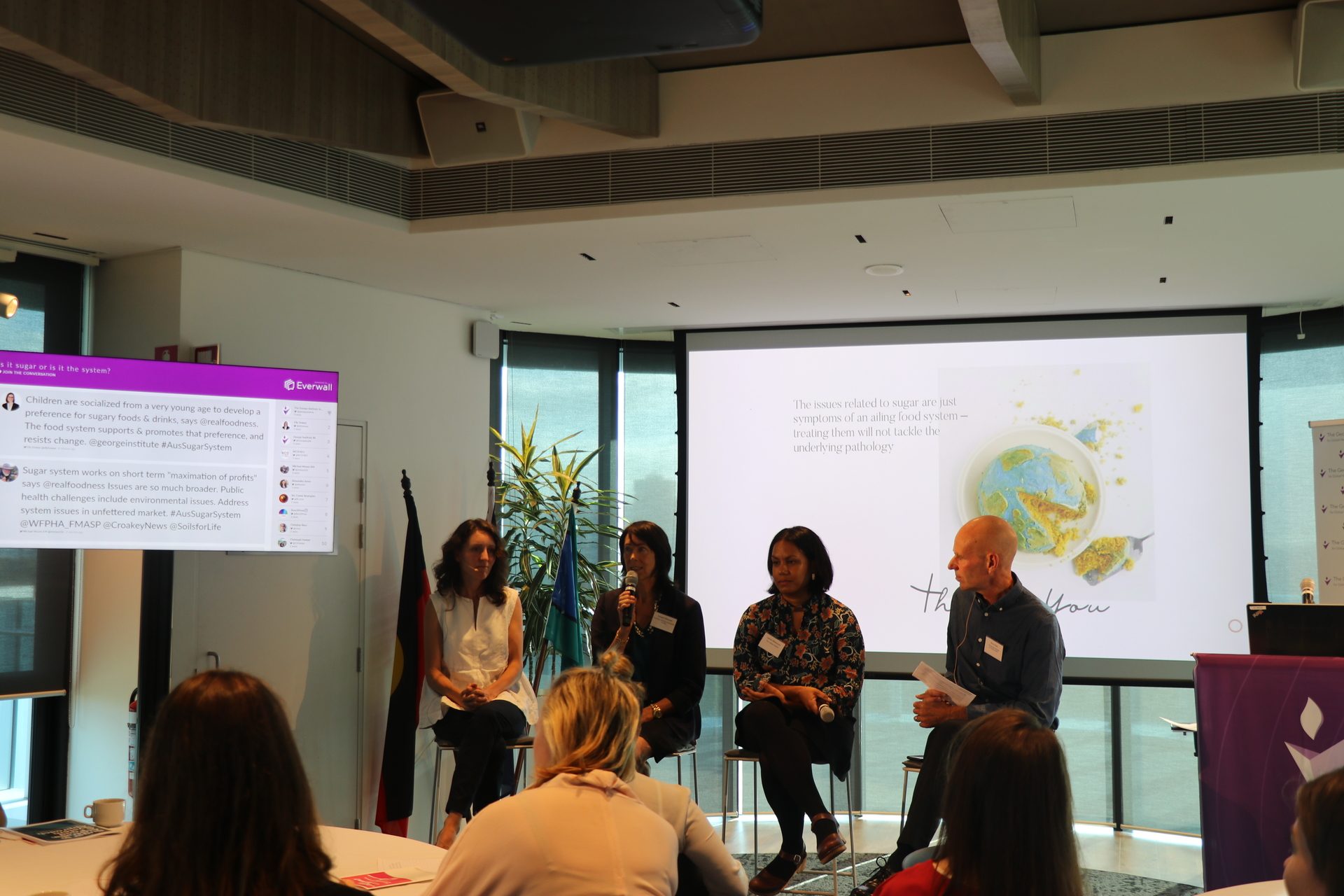
Is it sugar or is it the system? Exploring pathways for sustainable food system transitions
On the 20th of February 2020, The George Institute for Global Heath’s thought leadership program held a forum discussion to explore the Australian sugar system.
In Australia much of the debate around sugar to date has focussed on a sugar tax, a concept which is often polarising and where we haven’t seen much progress. It could also be argued that it is only a small part of a bigger problem. With this in mind, The George Institute commissioned a report, “Sugar in Australia: A Food System Approach. Competing Issues, Diverse Voices, and Rethinking Pathways to a Sustainable Transition”, with the objective of broadening the debate through investigating different sides of sugar in Australia from a food systems-perspective.
The forum discussion focused on:
- How to take a food systems approach to deal with the competing issues in the system;
- Rethinking pathways to a sustainable transition while; and
- Facilitating diverse voices to play a role in any shift that may occur.
Professor Bruce Neal, Executive Director, The George Institute for Global Health Australia, opened up the event by acknowledging the importance of a whole of system approach.
“The range of stakeholders in the room is a demonstration of the interest in this topic and hopefully the start of a thoughtful discussion about the roles and responsibilities of each stakeholder in this process”
Vanessa Clarkson the author of the report “Sugar in Australia: A Food System Approach” then followed by establishing the history of the sugar industry in Australia and how it is deeply rooted in colonialism and the development of the farming industry.
A panel discussion followed, featuring the perspectives Leonie Williamson from Lowitja Institute, Imogen Zethoven AO Campaign Director at Australian Marine Conservation Society as well as Prof Neal and Vanessa Clarkson.
Read the full report here: Sugar in Australia: A Food System Approach. Competing Issues, Diverse Voices, and Rethinking Pathways to a Sustainable Transition


